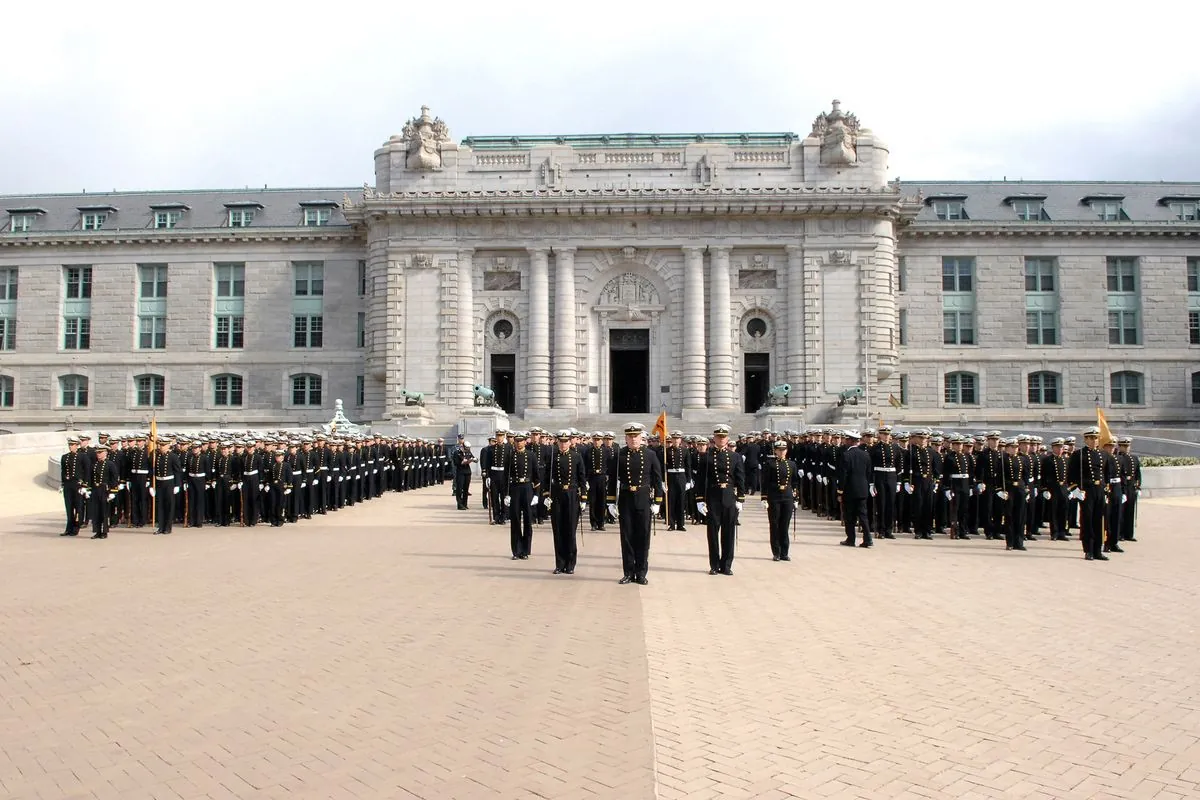Naval Academy Faces Trial Over Affirmative Action Policies
A federal trial challenging affirmative action at the U.S. Naval Academy begins today. The case, brought by Students for Fair Admissions, follows their Supreme Court victory against race-conscious college admissions last year.

The U.S. Naval Academy, a prestigious institution founded in 1845, is set to defend its admissions policies in a federal trial commencing today, September 13, 2024. This legal challenge, initiated by Students for Fair Admissions (SFFA), targets the military academy's continued use of affirmative action in its selection process.
This trial follows SFFA's significant victory at the Supreme Court 15 months ago, which resulted in the prohibition of race-conscious admissions practices at most U.S. higher education institutions. However, military academies were granted an exemption from this ruling, allowing them to maintain their diversity-focused policies.
The proceedings, scheduled to last two weeks, will take place in Baltimore under the supervision of U.S. District Judge Richard Bennett. Judge Bennett, who has over two decades of military service experience, previously rejected SFFA's attempt to preemptively bar the Naval Academy from considering race in admissions.

The government argues that diversity in military leadership is crucial for national security and operational effectiveness. This stance is rooted in historical context, dating back to the racial desegregation of the armed forces in 1948 and experiences during the Vietnam War era, when a lack of minority officers led to internal strife and reduced mission readiness.
Current demographic data illustrates the ongoing disparity between enlisted personnel and officer ranks. For instance, while Black individuals comprise 17.5% of Navy sailors, they represent only 8.3% of Navy officers. Similarly, in the Marine Corps, Black service members make up 10.5% of the force but only 5.9% of officers.
The Naval Academy, located in Annapolis, Maryland, plays a pivotal role in shaping future military leaders. Its graduates, who receive commissions as officers in the Navy or Marine Corps, are required to serve at least five years after completion of their studies. The academy's curriculum blends rigorous academic training with military discipline, preparing midshipmen for the challenges of naval service.
SFFA contends that the Naval Academy's policies amount to unlawful "racial balancing" and rely on stereotypes. They argue that assuming a connection between race and military effectiveness is a "pernicious stereotype."
"Military officers from one racial demographic can bring something that officers of other races cannot."
This case highlights the ongoing debate about diversity in military leadership and its impact on national security. As the trial unfolds, it will likely draw attention to the unique position of military academies in the broader landscape of American higher education.
The outcome of this trial could have far-reaching implications for military recruitment and leadership development strategies. It also underscores the complex interplay between constitutional principles, national security considerations, and the evolving understanding of diversity in American institutions.


































